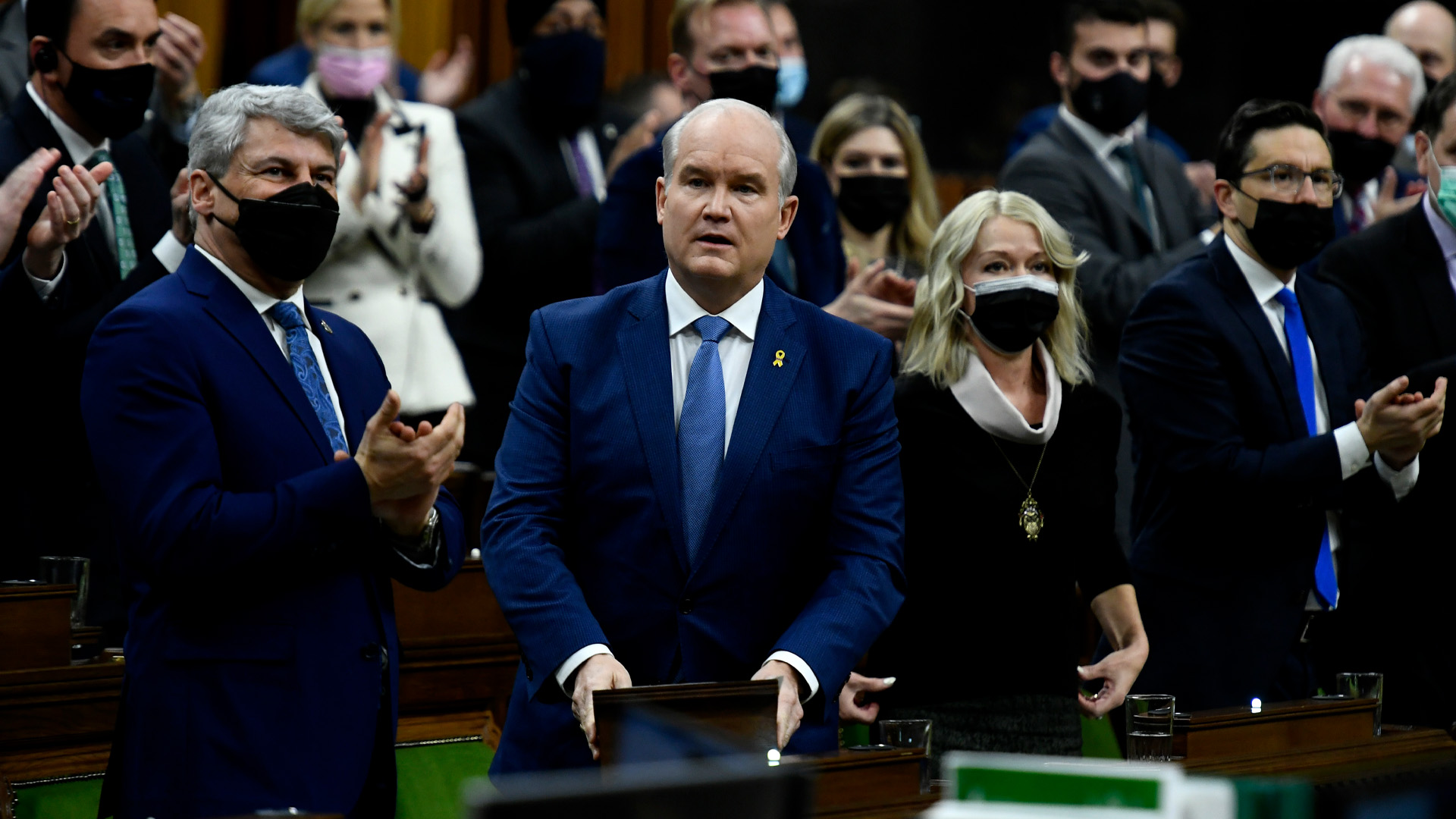Responses to the articles: The insincere sincerity of climate policy in the 2021 election, Creating a conservative climate change policy, and Assessing climate sincerity in the Canadian 2021 election
Federal Conservatives have resisted making a commitment to addressing climate change – despite the fact that opinion polls indicate they cannot win an election without doing so. Former leader Erin O’Toole was an exception. He introduced a carbon-pricing plan that was later rejected by the party. Many commentators, including those writing in Policy Options, have expressed concern about the party’s position – either because they regard climate change as a fundamental challenge requiring stronger action (as Imre Szeman has written), or because they believe that Conservatives should see no tension between serious environmental policy and traditional conservative values (as Jerome Gessaroli has argued).
The current party leadership race is fundamentally important. Effective democracy requires that there be a credible opposition – a government-in-waiting that has a serious possibility of being elected. As a result, all Canadians need the Conservatives to choose a leader who understands the importance of reducing carbon emissions.
This should not be too much to ask because a carbon tax is the most market-friendly (least regulatory) approach to climate change. Indeed, it relies on market incentives to address one of the market’s own imperfections – externalities. Negative externalities exist whenever a transaction harms a third party that is not consulted. Carbon taxes ensure that the third-party costs are respected, and they are efficient because those who can easily reduce emissions do so to avoid the tax, while those who cannot, pay the tax.
Carbon taxes are tailor-made for people with conservative views because aggregate emission-reduction targets can be met with no need for the government to identify which individual households and firms are in each group.
Nevertheless, it seems that many Conservatives find the word “tax” to be so offensive that O’Toole felt compelled to devise a plan that he claimed was “not a tax,” because the “revenue” was to go to each individual’s savings account – not to the government.
It would not be helpful for the Conservatives to return to some form of this individual savings-account proposal.
Many commentators criticized O’Toole’s plan as an administrative headache given the need for so many individual accounts. Others, such as Mark Jaccard in his ranking of the several carbon-emission policies on offer in the last election, expressed concern that this policy would “not be as effective as a simple $50 carbon tax.”
I am more concerned that this plan cannot be expected to work at all – even in theory. It is important that Conservative leadership candidates devise an emissions-reduction plan that is not open to this criticism. This is why I’m writing.
To appreciate the problem with the individual savings account plan, consider two goods (X and Y), with X production involving carbon emissions. Each household’s net income is its market earnings minus taxes plus subsidies. With carbon taxes on X purchases (T per unit) and green subsidies for Y purchases (S per unit), net income equals (market earnings – TX + SY). The fact that T and S appear in the household budget constraint is how these policies can affect behaviour. But O’Toole’s savings-account proposal assured each individual household that TX would equal SY. So, the tax and subsidy terms would cancel out and so disappear. With no policy items remaining, there could be no effect of policy on behaviour!
Normally, policies are designed to ensure no such cancelling-out. This is achieved by ensuring that the revenue-neutrality of the government initiative be imposed at the society level – not at each individual’s level. That is, if all the tax revenue is to be returned directly to individuals, the amount given to each individual is arranged to be independent of their own behaviour.
I hope that Conservatives can come to regard a carbon tax as okay, after all. If they wish to return the entire revenue to households within the same time period, I favour the subsidies going to those most hurt by the tax. But another use of the revenue should also be considered. Because many of the high-emission purchases that people make are on goods that they regard as necessities, a very high carbon tax may be required to generate a significant cutback in demand. That high tax rate may exceed what is politically feasible, so some direct emission cut-back laws, such as ruling out gasoline-powered cars by a specified date, are required as well. As a result, some of the carbon-tax revenue should be used to subsidize those who struggle to meet these laws.





